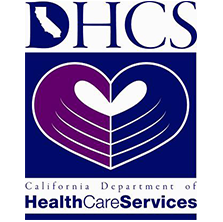Addiction is a disease that affects all aspects of an individual’s life. Recent imaging studies show how addiction literally changes parts of the brain. Areas of the brain that influence decision-making, inhibition and social-emotional processing are all changed by using and abusing drugs. That’s one reason it’s so important that addiction treatment is holistic. In order to begin recovering fully, an individual in recovery needs to re-learn how to live by incorporating life skills.
What are Some Common Life Skills?
Life skills are soft skills that make it possible for a person to be successful across several different areas. These skills help people excel no matter what challenges they encounter. Improving life skills makes it possible for people to have better personal relationships, better experiences at work and a more stable emotional landscape. Examples of life skills include time management, goal setting, vocational support, self-care practices, budgeting and meal planning. When a recovering individual masters these skills, they find they have a whole new toolbox to work with. When they face a problem, they can tackle it by falling back on these skills.
Time Management
Effective time management means being efficient. Consider the way people talk about time; they refer to ‘spending’ it. This is a clue to how valuable a commodity time is. The key to time management is in understanding time’s value, and in tracking the way it is used. With good time management, people find that they get more done in a day. Their productivity goes up at work and around the house. For example, with good time management, people may find that they are no longer in trouble for being late for work and doctors’ appointments. They have manageable laundry bags, not overwhelming mountains of dirty clothes.
Goal Setting
Setting goals is an important part of addiction recovery. Often in addiction treatment, people are asked to make three goals each morning. These goals don’t have to be big. In fact, sometimes smaller is better. Goals like, “today I’ll call a family member,” “today I’ll share in group/” and “today I’ll eat all my lunch” are a great starting point. Learning to live normally again means learning to nail all the small stuff. Of course, no one achieves every single goal they set. In a way, failing sometimes is just as important as succeeding. Failing teaches people to manage their expectations, and to break goals down into achievable pieces. With good goal setting, people in addiction treatment know just what to do each day to achieve their aims in the long term.
Vocational Support
Vocational support includes assisting people in finding and maintaining employment. This is a very important part of addiction recovery. Preparing to re-enter the workforce is a key piece of returning to normal life. Work is not just about earning money. Work is about the recovering individual learning to work and get along with other people, contribute to a community, and be a part of a team. Work can provide the person in recovery with a new and more healthy sense of self.
Self-Care Practices
Self-care practices are so important in anyone’s life. Self-care can include basic hygiene practices like showering, hair-washing and shaving. Other ways of performing self-care include managing stress and getting proper physical exercise. Some common tools used in tradition 12-step recovery are examples of self-care. These include making gratitude lists, doing morning meditations and doing one good thing each day without telling anyone about it. Once recovering people learn good self-care, they should also monitor it. If their self-care starts to slip or become more difficult, that’s a sign they should reach out for help.
Budgeting
When someone’s active in his or her addiction, they may feel totally out of control. Some people find they’ve spent thousands on their substance of choice or ways to obtain it. Creating and sticking to a budget is a great way to re-learn impulse control. It’s also a way of learning to think in the long-term again. With a good budget, people learn to stay within their limits and spend responsibly. Eventually, financial goals become achievable again.
Meal Planning
Meal planning is another important skill to learn. This connects with many of the other skills on this list, including budgeting and self-care. Instead of someone living in addiction, flitting from crisis to crisis, meal planning is a way of them taking care of themselves. Meal planning means preparing and eating healthy, affordable meals that make a person feel good. Individuals can learn how to effectively meal plan to meet their nutritional needs in recovery. While meal planning is important for all addiction recovery, it can be particularly important for people with eating disorders. As with all self-care, if meal planning becomes too difficult, it’s important to reach out for help.
Learning the skills to help someone live their best life of wellness is a crucial part of treatment. The philosophy at Safe Harbor House is to treat the whole person. Giving people the right tools doesn’t just help them stay sober. It gives them a full range of ways to confront and overcome the challenges that they meet. Instead of returning to using, they’re able to fall back on everything they’ve learned about how to build a successful life.
START YOUR JOURNEY WITH
SAFE HARBOR HOUSE
(310) 861-4157
Contact Us Today
Verify Your Insurance




